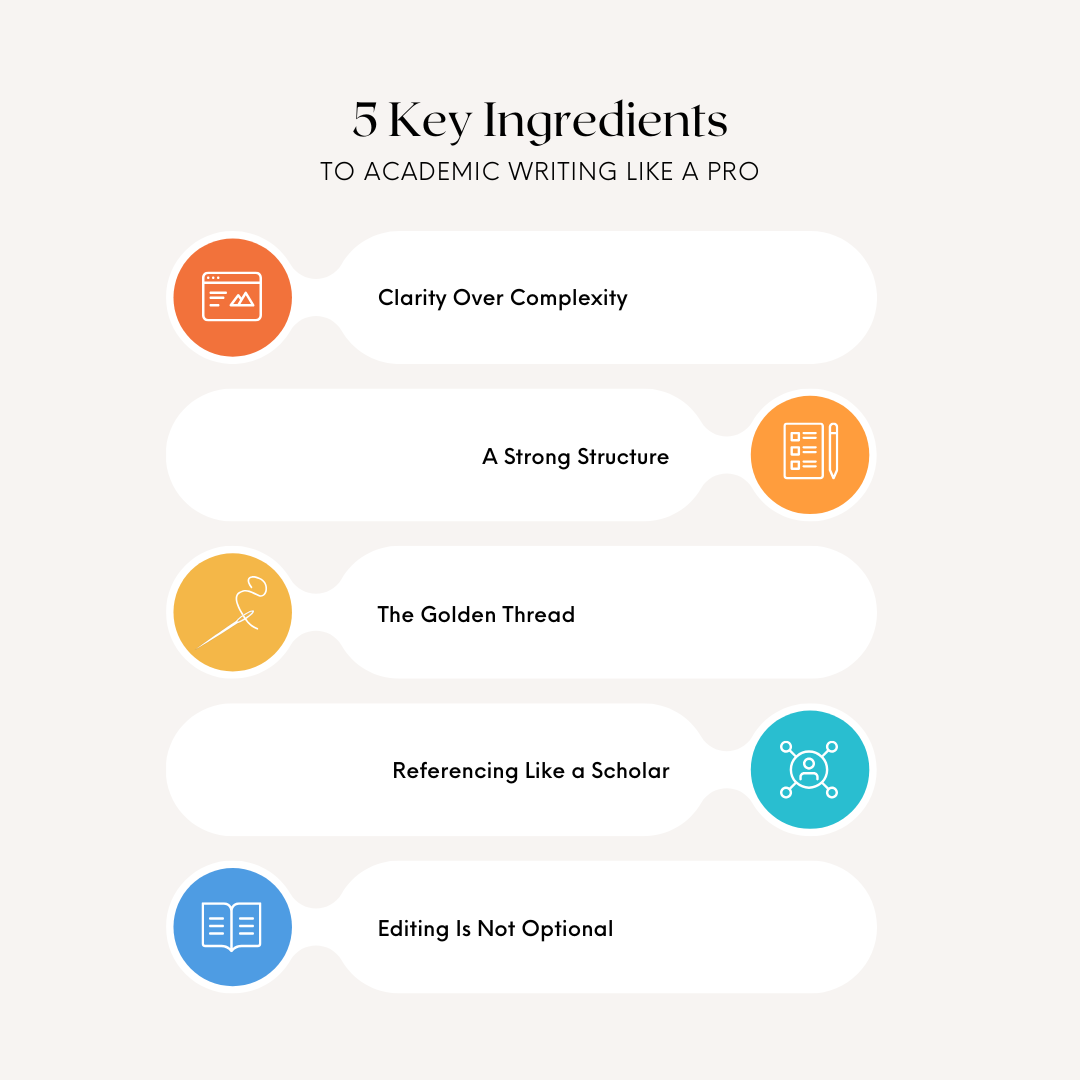Academic writing. Two words that strike both awe and fear into the hearts of students and researchers everywhere. It’s the language of knowledge, the vehicle for sharing your groundbreaking ideas with the world—yet somehow, it can also feel like deciphering an ancient code while juggling flaming swords. But fear not! With a little finesse and some strategic planning, you can master the art of academic writing like a pro.

Why Is Academic Writing So… Well, Academic?
Academic writing is a unique beast. Unlike the informal chit-chat of everyday life (or the emojis and abbreviations of texting), academic writing requires precision, clarity, and structure. It’s not just about sounding smart—it’s about making your ideas clear and accessible to others in your field. The goal is to communicate complex ideas in a structured way so that even the most sleep-deprived reader can follow along.
The Key Ingredients of Great Academic Writing
So, how do you transform your thoughts into polished, publishable work? Here are a few essential ingredients:
1. Clarity Over Complexity
Yes, big words can make you sound impressive, but if your reader has to Google every third word, you’re doing it wrong. Aim for precision and clarity—your argument should be the star of the show, not your thesaurus.
2. A Strong Structure
Academic writing thrives on organization. A well-structured piece typically follows this pattern:
- Introduction: Set the stage, define key terms, and state your research question.
- Literature Review: Show how your work fits into the existing body of knowledge.
- Methodology: Explain your approach and justify your choices.
- Findings/Results: Present your data without overwhelming your reader.
- Discussion: Interpret your findings and highlight their significance.
- Conclusion: Wrap it all up and suggest areas for future research.
3. The Golden Thread
No, this isn’t a fancy sewing technique—it’s the central argument that weaves through your entire paper. Every paragraph should connect back to your main research question. If a section doesn’t serve your overall argument, consider cutting it.
4. Referencing Like a Scholar
Nothing screams “academic credibility” like well-placed citations. Whether you’re using APA, MLA, Chicago, or another format, stick to it religiously. And please, don’t leave your references until the last minute—citation management tools like Zotero or Mendeley can save your sanity.
5. Editing Is Not Optional
Great academic writing doesn’t happen in a single draft. Your first draft will be messy—embrace it. But then, edit, refine, and edit some more. Read your work aloud, get a fresh pair of eyes on it, and use tools like Grammarly or Hemingway to tighten things up.
Practical Tips for Writing Like a Pro
- Write first, edit later. Overthinking every sentence will slow you down. Get your ideas down, then refine them.
- Set word limits. If you tend to waffle, impose strict word counts for each section.
- Use transitions wisely. Phrases like “However,” “Moreover,” and “In contrast” guide your reader smoothly from one idea to the next.
- Kill your darlings. If a sentence is beautifully written but doesn’t serve your argument, it has to go.
- Take breaks. Writing marathons lead to burnout. Step away, clear your mind, and return with fresh eyes.
Need Help Sharpening Your Writing? Let’s Chat!
Academic writing can be tough, but you don’t have to tackle it alone. If you’re struggling with structure, clarity, or just need a second opinion on your work, let’s chat! I offer personalized coaching sessions to help you refine your writing, develop your argument, and get your work publication-ready.
Book a free introductory call and let’s make your academic writing shine!
Mastering the art of academic writing is a journey, not a destination. Keep practicing, keep refining, and before you know it, you’ll be crafting papers that even your harshest reviewer will admire. Happy writing!